Labor law is outdated and rotten in the US, corporations have an inordinate amount of power, so it is rare that unions win or even strike these days. Solid activist leadership in our unions is rare in these last decades of concessionary bargaining and the sustained war on the working class. The lack of a class perspective by many Americans makes them susceptible to the ugliest sorts of manipulation against their own interests.
Steve Early has seen much of it and described it in a clear-eyed fashion in his latest book, Save Our Unions: Dispatches from a Movement in Distress (Monthly Review 2013). It should be read by unionists and their supporters and the more than 60% of Americans who pollsters say would like to be unionized.
Early, like this author, is a retired telephone union staffer with the Communication Workers of America (CWA.) He has been a prolific writer on labor and social movements since he was a labor journalist working for the Mine Workers (UMWA) in the 1970s. He’s been published in many periodicals over the years and this book, like his first, Embedded with Organized Labor: Journalistic Reflections on the Class War at Home (Monthly Review, 2009) is an expanded collection of his reviews, reporting and commentary. It’s a coherent collection that is of good use to young and old union members and leaders, as well as labor historians looking for the “Inside Baseball” after game insight of an experienced practitioner with a class perspective that is normally missing from “union books.”
In Save Our Unions Early takes us on a tour of how unions themselves often presided over the dismantling of the gains won for their members, gains which often became normalized in workplaces across America. Early clearly views some of the current diminished power of organized labor as due in large part to self-inflicted wounds. The important social movement character and countervailing force of organized labor is sadly much less consequential today. His stories shine a light on the struggle for the kind of unionism that will really help workers rise up and improve their condition—comparing the often tired and ineffective staff-focused business union model saddling US unions after WWII with a more militant and cutting edge social model. He shows the effectiveness of a model that involves union members themselves, members of the community and other economic stakeholders in good jobs. It is a challenge to the notion, recently suggested by Dorothy Sue Cobble, in Labor: Studies of Working Class History of the Americas, (see sidebar for forum) that the old AFL provides a model for the future. Instead, it reinforces Julie Greene’s suggestion in that forum that reinforcing these old institutional structures is part of the problem for the current labor movement.
Drawing stark contrasts between the social unionism that usually accounts for the limited successes he describes throughout the book, to the business unionism, so removed from the workplace with its reliance–written into the Wagner Act and its legal mutations over the decades—on collective bargaining, mediation and binding arbitration far away from the job site, Early describes today’s largely moribund institutional labor movement. He’s polite in some cases, understanding the reality of trying to serve a shrinking membership, often disinterested or unable to fight extended shop floor wars, and trying to maintain employment with existing employers. However, when a leader misleads, he often calls them out, as he recounts tales like the misjudgment of PATCO leaders in the nationwide strike of 1981 or the New York Transport Workers leader who shredded a well-organized steward’s network and lead a doomed strike that seriously wounded his previously successful union.
Steve Early’s book is well-documented with more than 30 pages of end notes which support his careful reporting and the “cover your butt” attitude of the union staffer. I appreciated this, especially in the sections about Telecom Industry bargaining. This section reads like a novel. The lies and intrigue of Telecom management are an almost unfathomable story with lessons about the abuses of corporate power even when collective bargaining is legally operational. Early describes the joint union fight by CWA and IBEW to maintain the last elements of any type of social contract existing in a “legacy” company at NYNEX/Verizon. This century old company was built by career workers and granted a government monopoly in the effort to modernize the US during the Depression, through the implementation of “Universal Telephone Service,” or a telephone in every home. Reflecting on the Cobble/Greene debate, it’s interesting to note that CWA was originally a CIO union, while the IBEW has always been an AFL affiliate with little history of using a “social” or “organizing” model of unionism. At least at NYNEX/Verizon, Early describes how these unions have broken those stereotypes to fight back during the last 25 years, using a variety of shop level resistance tactics viewed as “radical” by many in the IBEW establishment. On this the 30th anniversary of the dismantling of the old Bell System telephone monopoly, Save Our Unions is worth the price for this section alone.

Early also writes about local and national union reform movements in the Teamsters, Electrical, Transport and Auto workers, and the Service Employees. He includes lengthy discussions about different organizing methods with candor about their effectiveness and the human toll they often exact on their usually young practitioners. He describes some of the best contract campaigns of the last decades and he also touches on some of the alternative methods of organizing. Included among these are an extended description of “salting” in a workplace to discreetly organize it and the “Fight for $15” campaign that organized labor is backing from a distance, but appears to be driving the push to raise the minimum wage.
The book also brings us up to speed on the continuing west coast saga of SEIU-UHW, its renegade NUHW spinoff and CNA in the health care industry. In a previous book, The Civil Wars in US Labor: Birth of a New Worker Movement or Death Throes of the Old? (Haymarket, 2011), Early described in detail the internecine character of this struggle that calls into question Cobble’s paean to the old AFL unions –a century later—and calls us to ponder how truly “radical” institutional labor can ever really be. There are many stories in the book that not only recount recent labor history, but contrast the struggle of an embattled working class fight on the shop floor and in union meetings to save a way of life and the way to do it.
Always the working journalist, even when Early is summering in Vermont he can’t resist chronicling the political doings in the Green Mountain state. He offers a long section on political organizing and change in Vermont where he recounts a number of interesting stories, among them the fight for the Vermont single payer health care system and Senator Bernie Sanders’ town hall meetings. This section holds out some hope in a sometimes dark book. Save Our Unions is vital to rethinking the total focus on employers and the 1% as the only cause of the loss of labor and working class power and should be read by those interested in reviewing, in one place, the best and worst of labor.

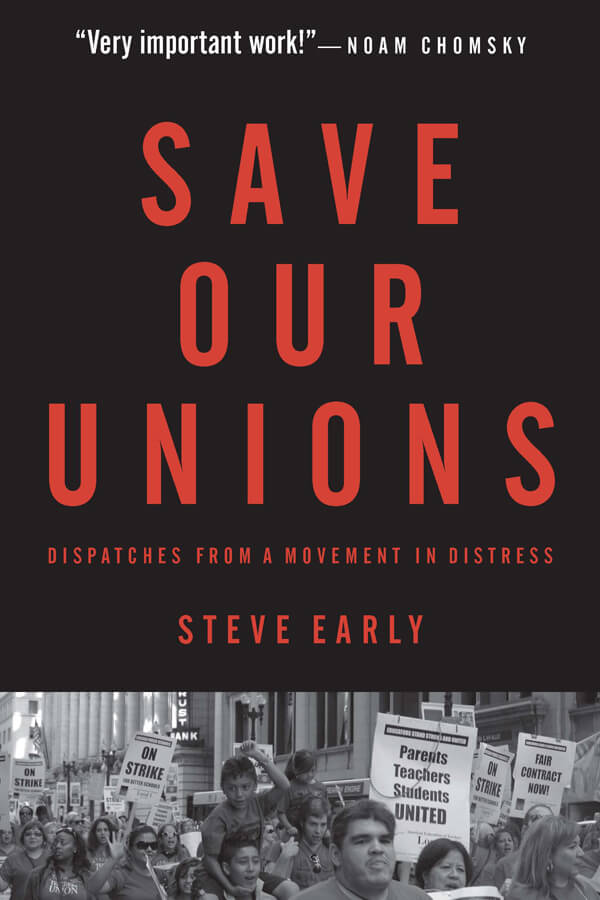


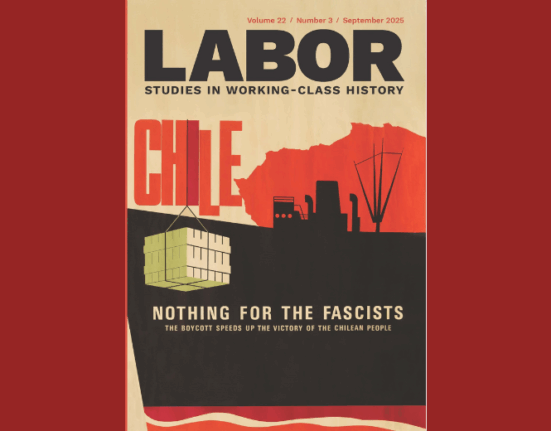
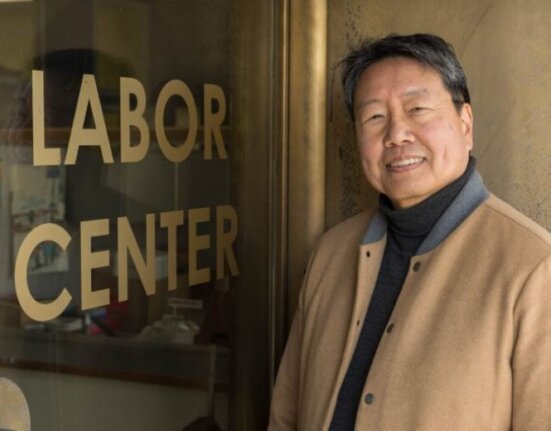
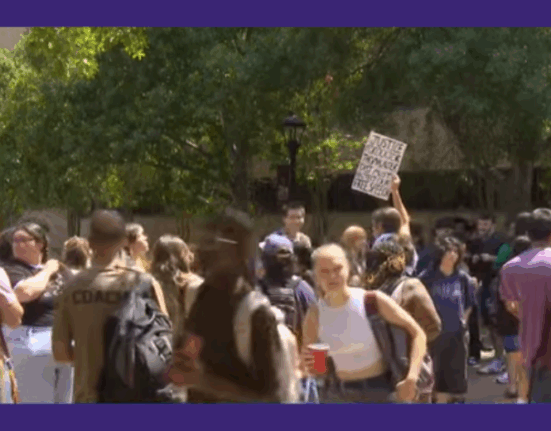
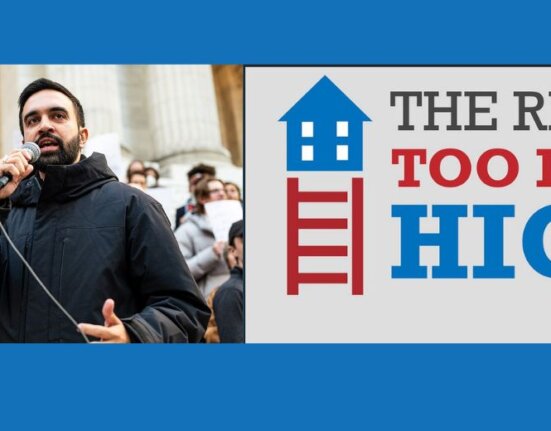
3 Comments
Comments are closed.